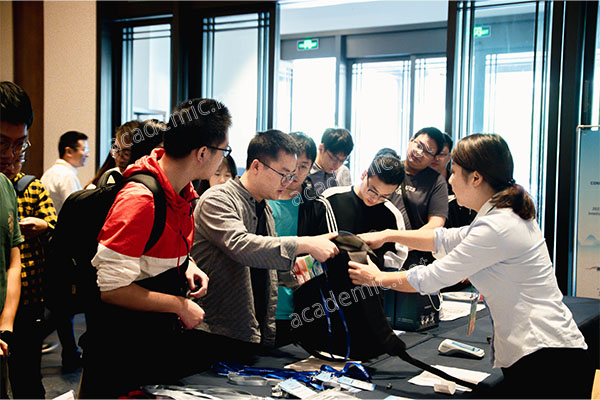Bridging Research and Practice: The Role of EI Journals in Conference Development
The integration of Emotional Intelligence (EI) research into conference development represents a powerful strategy for bridging the gap between academic inquiry and practical application. As venues for knowledge dissemination and professional networking, conferences offer unique opportunities for the exploration and implementation of EI concepts. Here, we discuss the pivotal role that EI Journals play in enhancing conference development and facilitating a meaningful exchange of ideas that can be applied in real-world settings.

One significant contribution of EI Journals to conference development is the enrichment of conference themes. By delving into the latest research findings published in these journals, conference organizers can identify emerging trends and pressing issues within the field of Emotional Intelligence. This research can inspire conference themes that are not only timely but also relevant to both academic researchers and practitioners. For instance, themes on the impact of EI in leadership effectiveness, team dynamics, and organizational behavior can attract a wide audience interested in the latest evidence-based practices.
**Informing Keynote Addresses and Workshops**
Keynote speakers and workshop facilitators can harness the wealth of knowledge found in EI Journals to inform their presentations and discussions. By referencing compelling studies, presenters can ground their sessions in robust empirical evidence, providing attendees with insights that are both credible and applicable. This approach ensures that the content delivered at conferences is not only inspirational but also actionable, encouraging attendees to apply what they have learned in their professional contexts.
**Fostering Networking and Collaboration**
The content derived from EI Journals can serve as a catalyst for networking and collaboration among conference attendees. By focusing on research topics that reflect the current interests and challenges within the field, conferences can facilitate discussions that lead to collaborative projects, research endeavors, and professional partnerships. This collaborative environment is essential for the continued growth and development of Emotional Intelligence as a discipline, as it encourages the cross-pollination of ideas and the integration of diverse perspectives.
**Supporting Continuous Learning**
Moreover, the inclusion of EI Journal content in conferences supports continuous learning among participants. Attendees leave with a wealth of resources to explore further, extending the learning experience beyond the event itself. Conferences can guide participants toward relevant journals, articles, and authors, helping them stay informed about ongoing advancements in Emotional Intelligence research.
In conclusion, the role of EI Journals in conference development is multifaceted and profoundly impactful. By incorporating research findings into conference themes, presentations, and discussions, organizers can create events that not only disseminate knowledge but also inspire practical application. This synergy between research and practice serves to advance the field of Emotional Intelligence, fostering a community of informed practitioners and researchers dedicated to applying EI principles for positive change.
